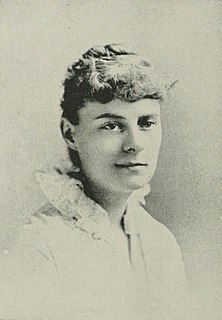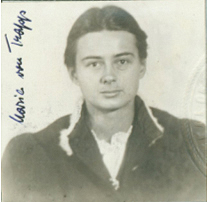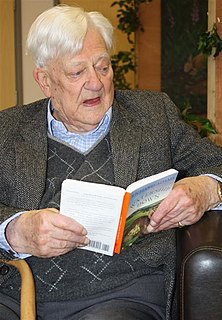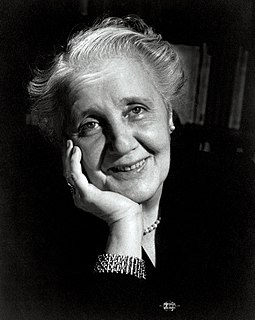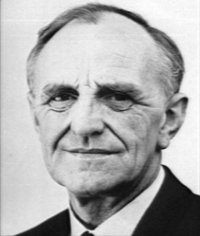Цитата Лизетт Вудворт Риз
Ребенок без какого-либо знакомства с классиком литературы... страдает от этого обнищания на всю оставшуюся жизнь. Никакая последующая близость не похожа на первую.
Темы цитат
Связанные цитаты
Должно быть торжественное и ужасное одиночество, которое охватывает ребенка, когда он делает первые самостоятельные шаги. Все это утрачивается в памяти, и мы можем восстановить это только по аналогиям в более поздней жизни... Ребенку, который делает свои первые шаги и обнаруживает, что идет один, этот момент должен принести первое острое ощущение уникальности и обособленности его жизни. тело и его личность, открытие одинокой самости.
Каким бы бредовым это ни было, секс — это только один из видов близости, и тем не менее он стал культурной областью охвата всех видов потребностей, потому что наше понимание близости настолько плохо. Жестокий график работы, связанная с этим географическая изоляция и сопутствующее разрушение семей означают, что остается мало времени для близости и еще меньше для обучения необходимым навыкам. Но близость, ось романтики, медленная, основанная на разделении жизни, а не на показе. С точки зрения близости, складывание белья вместе или совместное кормление ребенка может иметь большее влияние, чем самый экстравагантный букет.
Вы знаете все то сочувствие, которое вы испытываете к ребенку, подвергшемуся насилию, который страдает без хорошей мамы или папы, которые бы любили и заботились о них? Ну, они не остаются детьми навсегда. Никто волшебным образом не становится взрослым в тот день, когда ему исполняется восемнадцать. Кто-то взрослеет раньше, кто-то взрослеет позже. Некоторые никогда этого не делают. Но просто помните, что некоторые люди в этом мире являются старшими версиями тех самых детей, о которых мы плачем.
Я слышал, как люди спрашивают: что такого святого в классических книгах, что вы не можете изменить их для современного ребенка? В классике нет ничего святого. Что делает классику, так это жизнь, которая накапливалась в ней от поколения к поколению детей. Дети дают жизнь этим книгам. Некоторые книги, которые вы с трудом можете читать, являются классикой для детей.
Подобно боли от серьезной раны, эффект глубокого шока ощущается через некоторое время. Когда ребенку впервые в жизни говорят, что человек, которого он знал, умер, хотя он и не верит в это, он вполне может не понять этого и позже спросить - может быть, не раз, - откуда мертвый человек и когда он вернется.
Хотя психология и педагогика всегда придерживались мнения, что ребенок есть счастливое существо, не имеющее никаких конфликтов, и полагали, что страдания взрослых являются следствием тягот и невзгод действительности, следует утверждать, что верно как раз обратное. То, что мы узнаем о ребенке и взрослом посредством психоанализа, показывает, что все страдания позднейшей жизни суть большей частью повторения этих прежних, и что каждый ребенок в первые годы жизни проходит через неизмеримую степень страданий.
Я помню сеанс групповой терапии, когда один из пациентов неохотно сворачивал за угол. Он согласился бы с этим, сказал он, но ему не понравится идея решать проблемы каждый день до конца своей жизни. Мой коллега-терапевт сказал ему, что не обязательно, чтобы ему это нравилось. Она поделилась своим неудовольствием, сказав: «Я помню, что, когда я впервые узнала, на что похожа жизнь, я была в ярости. Наверное, я все еще иногда схожу с ума». (135)
Мать смотрит на младенца на руках, а младенец смотрит на лицо матери и находит себя в нем... при условии, что мать действительно смотрит на уникальное, маленькое, беспомощное существо, а не проецирует собственные ожидания, страхи и планы на ребенка. В этом случае ребенок находил бы не себя в лице матери, а собственные проекции матери. Этот ребенок остался бы без зеркала и всю оставшуюся жизнь тщетно искал бы это зеркало.
Нет ничего невыносимее для человека, чем быть в полном покое, без страстей, без дела, без развлечений, без учебы. Тогда он чувствует свое ничтожество, свою заброшенность, свою недостаточность, свою зависимость, свою слабость, свою пустоту. Немедленно возникнет из глубины его сердца усталость, уныние, печаль, раздражительность, досада, отчаяние.
